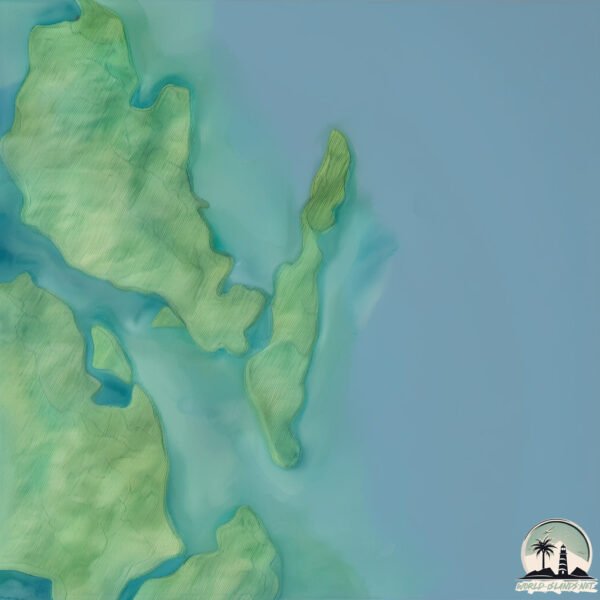Pulau Tanjung Dendang

Welcome to Pulau Tanjung Dendang, a Tropical island in the Malacca Strait, part of the majestic Pacific Ocean. This guide offers a comprehensive overview of what makes Pulau Tanjung Dendang unique – from its geography and climate to its population, infrastructure, and beyond. Dive into the details:
- Geography and Size: Explore the island’s size and location.
- Climate and Weather: Weather patterns and temperature.
- Topography and Nature: Uncover the natural wonders of the island.
- Infrastructure and Travelling: Insights on reaching, staying, and making the most of your visit.
- News and Headlines: Latest News.
Geography and size of Pulau Tanjung Dendang
Size: 1.454 km²
Coastline: 10.1 km
Ocean: Pacific Ocean
Sea: Malacca Strait
Continent: Asia
Pulau Tanjung Dendang is a Small Island spanning 1.5 km² with a coastline of 10.1 km.
Archipel: –
Tectonic Plate: India – A major tectonic plate that initially moved northward at a rapid pace before colliding with the Eurasian Plate. This collision is responsible for the uplift of the Himalayas and the Tibetan Plateau.
The geographic heart of the island is pinpointed at these coordinates:
Latitude: 6.41769708 / Longitude: 99.91380123
Climate and weather of Pulau Tanjung Dendang
Climate Zone: Tropical
Climate Details: Tropical Monsoon Climate
Temperature: Hot
Climate Characteristics: Characterized by heavy rainfall, high humidity, and uniformly high temperatures, but with a distinct short dry season. It features a seasonal reversal of prevailing wind directions.
Topography and nature of Pulau Tanjung Dendang
Timezone: UTC+08:00
Timezone places: Australia/Perth
Max. Elevation: 50 m
Mean Elevation: 29 m
Vegetation: Evergreen Needleleaf Forest
Tree Coverage: 98%
The mean elevation is 29 m. The highest elevation on the island reaches approximately 50 meters above sea level. The island is characterized by Plains: Flat, low-lying lands characterized by a maximum elevation of up to 200 meters. On islands, plains are typically coastal lowlands or central flat areas.
Dominating Vegetation: Evergreen Needleleaf Forest
Dominated by evergreen coniferous trees such as pines and firs, which retain their needle-like leaves throughout the year. These forests are often found in cooler climates. Pulau Tanjung Dendang has a tree cover of 98 %.
Vegetation: 3 vegetation zones – Moderately Diverse Island
These islands start to show a broader range of ecological niches. With three vegetation zones, they may offer a mix of ecosystems like coastal areas, inland woods, and perhaps a distinct wetland or dry area. This diversity supports a wider range of flora and fauna, making these islands more ecologically complex than those with minimal diversity.
Infrastructure and Travelling to Pulau Tanjung Dendang
Does the island have a public airport? no.
There is no public and scheduled airport on Pulau Tanjung Dendang. The nearest airport is Langkawi International Airport, located 22 km away.
Does the island have a major port? no.
There are no major ports on Pulau Tanjung Dendang. The closest major port is PELABUHAN BASS, approximately 13 km away.
The mean population of Pulau Tanjung Dendang is 281 per km². Pulau Tanjung Dendang is Moderately Inhabited. The island belongs to Malaysia.
Continuing your journey, Langkawi is the next notable island, situated merely km away.
LANGKAWI, MALAYSIA | 10 BEST Things To Do On Langkawi Island



Malaysia is classified as Developing region: Regions characterized by lower income levels, with economies in the process of industrialization and modernization. The level of income is Upper middle income.
News – Latest Updates and Headlines from Pulau Tanjung Dendang
Stay informed with the most recent news and important headlines from Pulau Tanjung Dendang. Here’s a roundup of the latest developments.
Please note: The data used here has been primarily extracted from satellite readings. Deviations from exact values may occur, particularly regarding the height of elevations and population density. Land area and coastline measurements refer to average values at mean high tide.
